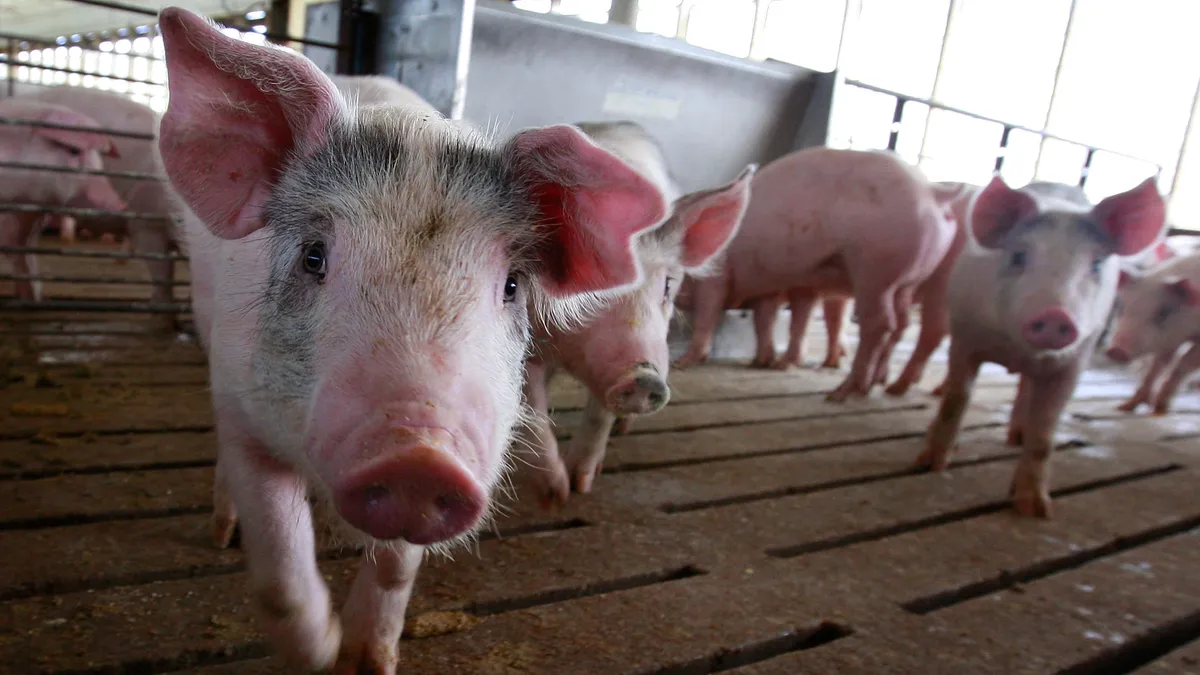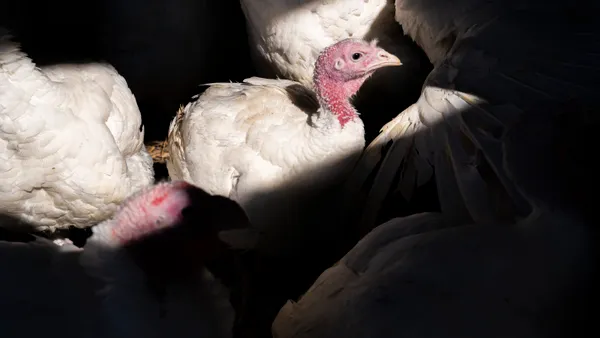Dive Brief:
-
The U.S. Department of Agriculture is allowing six pork processing plants to continue operating at increased line speeds as part of a temporary trial, marking a win for the industry amid market challenges.
-
For future rule-making purposes, the agency on Monday said it will extend the “time-limited trial” for up to an additional 90 days while experts design a study about the impact faster line speeds have on worker safety.
-
The initial trial, which began March 4, 2022, was supposed to end Nov. 30. Lawmakers had expressed concerns about the potential effects slowing production would have on farmers and processors, such as supply chain and inflationary disruptions.
Dive Insight:
Pork producers have pushed to operate faster line speeds as they struggle with high input costs and low hog values, evaporating returns and limiting industry growth.
Earlier this month, lawmakers sent a letter requesting Agriculture Secretary Tom Vilsack to extend the trial period, warning “producers will again be facing lost market leverage and fewer options for selling their hogs, potential contract cancellations, and greater transportation costs.”
Debates over processing line speeds have roiled the meat industry for years. Labor groups have fought back against proposals to run line speeds faster, arguing it constitutes risks to food and worker safety.
Under the Trump administration, USDA sought to eliminate line speed caps from facilities participating in the New Swine Slaughter Inspection System, allowing for faster production. However, in March 2021, a federal court in Minnesota ordered to eliminate that portion of the agency’s final rule due to worker safety concerns.
As a result, all NSIS establishments were required to operate at line speeds not exceeding 1,106 head per hour as of June 30, 2021.
A few months later, USDA established a “time-limited trial” in which certain processing plants could operate at increased line speeds if they agreed to collect and submit data that would ultimately be used to evaluate the impact of faster operations on workers. There are six participating facilities.
USDA said worker safety experts determined the data already submitted for the trial, which began in March 2022, was not sufficient enough for future rulemaking for NSIS. The agency is commissioning a study that will independently generate the necessary data for expert analysis. The extension allows more time while the study is being designed.
USDA’s 90-day extension is the second this year following pressure from lawmakers on Capitol Hill. The trial’s original expiration date was March 4, 2023, but got pushed back to November 30.
Members of the Senate and House Agriculture Committees applauded USDA’s action, but cautioned that a more permanent solution would be needed for the pork industry.
“While I’m pleased that USDA has taken a step in the right direction by extending the program, the agency risks creating a harmful bottleneck in the pork supply chain if it fails to extend the program beyond just three months,” Republican Sen. Chuck Grassley of Iowa said in a statement Wednesday.











